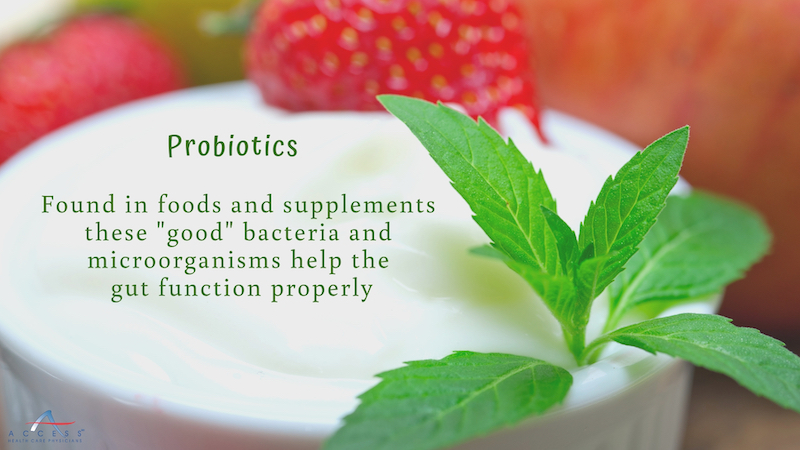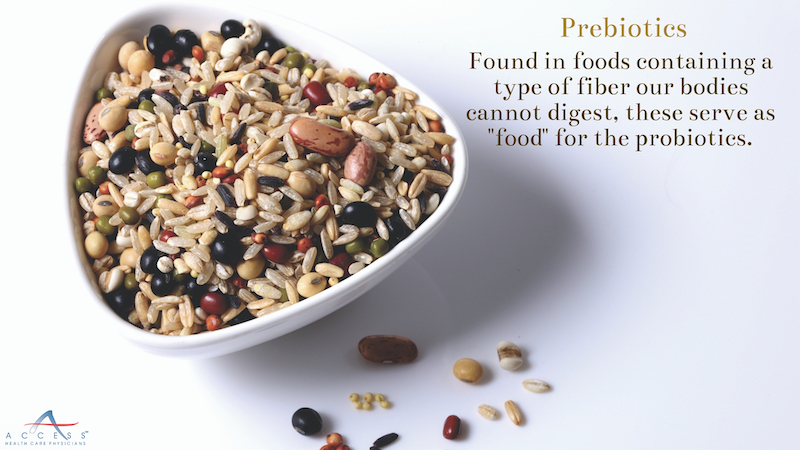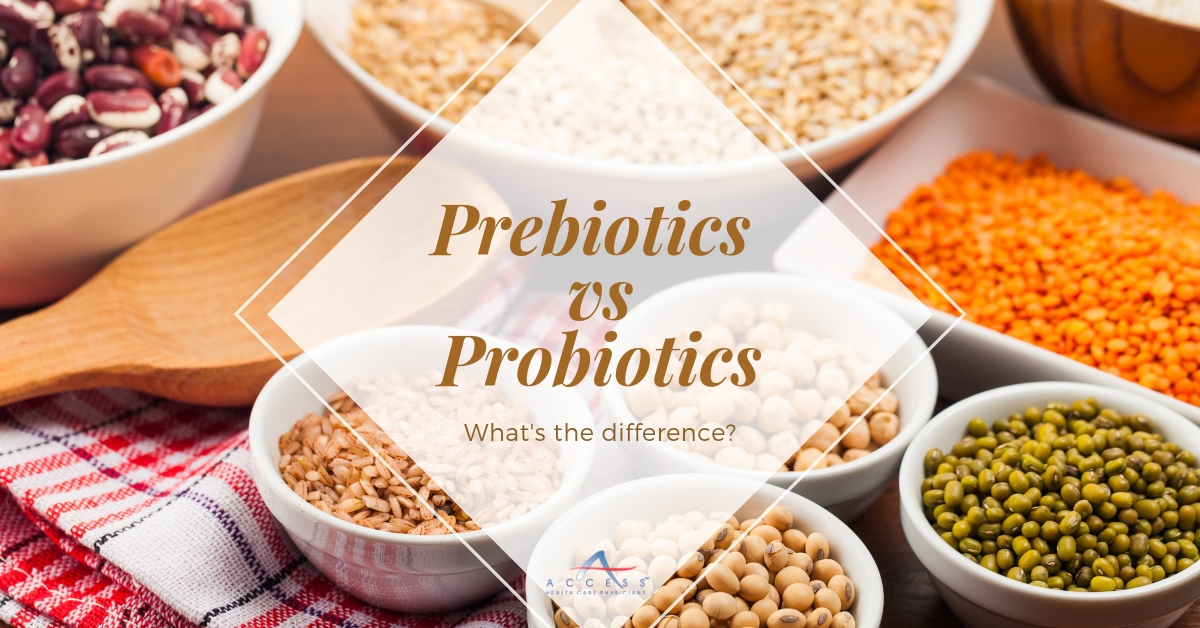The words are commonplace when talking about health and diets, but what is the difference between probiotics and prebiotics? Do I need both?
Both prebiotics and probiotics may help support the body’s natural colony of “good” bacteria which is needed for the gut and digestive system to function properly. This “good bacteria,” as it is commonly called, works to protect your digestive tract from harmful bacteria and helps send signals to your immune system. Prebiotics are a type of fiber that our bodies cannot digest which serve as food for the probiotics. Let’s start by breaking down the difference between prebiotics and probiotics.
PROBIOTICS
While probiotics have been touted for years for their ability to help our digestive system, research has also linked these naturally occurring microorganisms to a decreased risk of antibiotic-related diarrhea, decreased symptoms of eczema and decreased risk of yeast infections.
There are many types of probiotics, but the most common are Bifidobacterium & Lactolacillus. Probiotics are available in many dairy products but also can be found in non-dairy foods. Some common examples include:
- Yogurt
- Kefir
- Sauerkraut
- Kimchi
- Kombucha
- Fermented Buttermilk
- Fermented Cheese (such as gouda)

PREBIOTICS
The research on prebiotics is new, but studies have shown that prebiotics help support naturally occurring bacteria and microorganisms in our gut. Prebiotics are found in fiber-rich foods and that fiber both helps “feed” probiotics as well as helps food pass through your digestive system. In addition to gut health, some research suggests that prebiotics may help improve calcium absorption and may speed up the body’s ability to process carbohydrates. Because prebiotics occur naturally in food, there is typically no need for supplementation.
Foods containing prebiotic fiber range greatly and include:
- Beans & Legumes
- Red Kidney Beans
- Lentils
- Chickpeas & Soybeans
- Whole Grains
- Oats
- Barley
- Bran
- Vegetables
- Garlic
- Onions & Shallots
- Leeks
- Nuts & Seeds
- Flaxseeds
- Almonds
- Pistachios
- Fruits
- Tomatoes
- Bananas
- Berries

Along with prebiotics, most of the foods listed above provide many healthy nutrients, vitamins and minerals needed for overall health. For many foods, cooking them will result in a reduced amount of nutrients, so when possible, they should be enjoyed raw and whole. For most people adding a supplement should not be necessary if a varied, fresh and healthy diet is enjoyed. As always be sure to discuss with you doctor before major changes in your diet and before adding supplements to make sure it is the right choice for you.
Want to keep up with more content like this? Be sure to “like” and follow us on Facebook & Instagram!
Written By: S. Campbell for Access Health Care Physicians, LLC.


